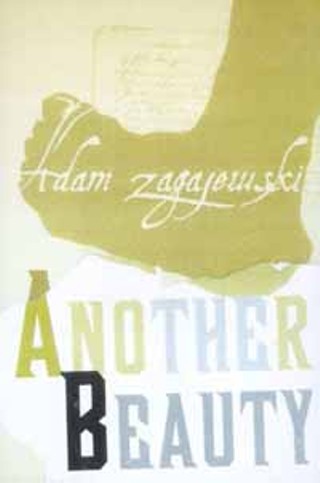Another Beauty
Adam Zagajewski
Reviewed by Lissa Richardson, Fri., Oct. 27, 2000

Another Beauty
by Adam Zagajewskitranslated by Clare Cavanagh
Farrar, Straus and Giroux, 221 pp., $23
Adam Zagajewski is a critically acclaimed poet who, living in both Paris and Houston (where he teaches at the University of Houston) is estranged and exiled from his native Poland. With an exile's wizened eyes, Zagajewski reflects upon his coming of age as a poet and a Pole in Another Beauty. Written in prose, not poetry, and translated from the Polish into English, this book is an amalgamation of memories, poetic aesthetics, and history that reads like a daily journal. It is haphazard, sometimes very personal, and not always interesting to the outsider -- not a tour de force of poetic insight that one could expect from such a prolific writer and experienced teacher.
To be fair, Zagajewski's experiences are important to hear for anyone who questions what it means to be a poet or what it means to write. Zagajewski began to write in a politically charged environment of leftist rebellion and, as such, made an international name for himself as a political poet. A major portion of Another Beauty attempts to rationalize Zagajewski's political tendencies, explaining them away as the folly of a passionate youth: "It sometimes bothers me that I made my debut as an angry young man, a political poet dead set against the system. Such poetry ceased to interest me long ago. ... The poet is a born centrist; his parliament is elsewhere, and houses both the living and the dead." This honest, controversial voice is Zagajewski at his best, but he cannot sustain it. He follows this statement with dry political science: "This is why poets should always endorse a parliamentary system with an expanded unicameral legislature."
Zagajewski's memories of Krakow and Prague are perhaps the most interesting parts of Another Beauty. He creates detailed images of the people he knew. For example, his first landlady and her housekeeper are "aging ... ugly, taken from a second-rate Dutch painting, in a cramped apartment, in spite." About his friends, he says: "No one better honors the works of the human spirit than students sitting for hours in the smoke-filled rooms of little restaurants, students caught up in conversation." About Krakow, to where he moved in order to become a philosophy student, he says, "This is a beautiful city. It's not a beautiful city. Light as the Renaissance, heavy as lead."
It's the concrete material of this collection that comes to life more than the reflections and philosophical musings over which Zagajewski wants to linger. He seems to recognize his own dilemma. He says that "only things of the spirit are truly engaging. But it's nearly impossible to speak of them; they're as transparent as muslin. One can talk only about people and things --talk about them so they'll cast a shadow." The shadow cast by Another Beauty's people and places is greater than his attempts at exploring things of the spirit, no matter how commendable these attempts may be. Another Beauty is ambitious and at times self-indulgent, and while it helped me to know more about this man as a poet, I'd rather read his poetry. Somehow, I think Zagajewski would prefer that, too.









